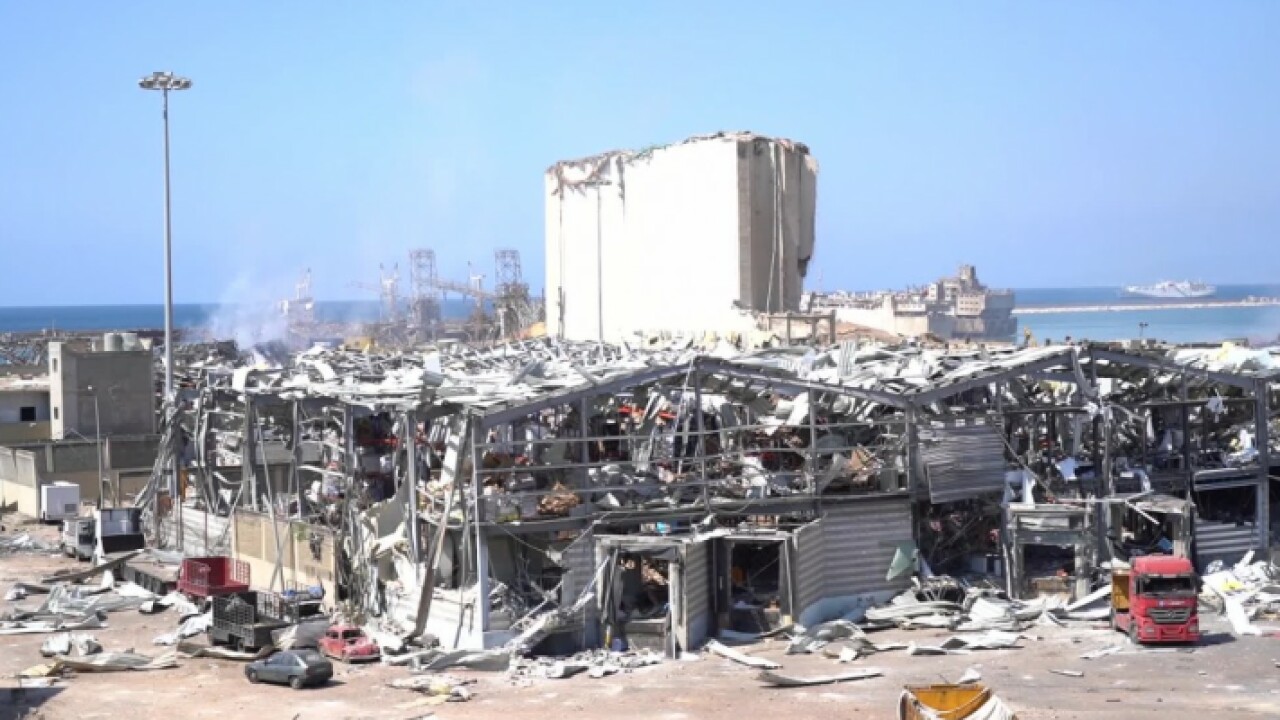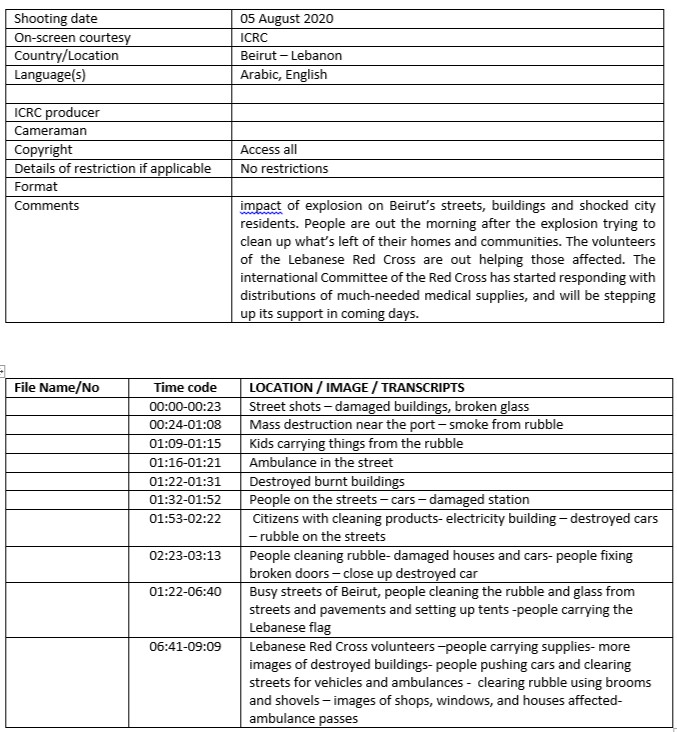Lebanon: Huge support needed as Beirut and its people shaken to core by devastating explosion

This is a modal window.
The International Committee of the Red Cross is actively responding to the aftermath of the explosion in Beirut and remains committed to supporting Lebanon during these difficult times.
Lebanon will continue to feel the aftershock of the explosion long after this week’s blast. Besides the loss of life and injury, people have lost their homes and businesses. The country was already in an extremely fragile state, after months of a spiraling economic crisis and the coronavirus pandemic. This is a severe blow to people who are already struggling.
Some 250 thousand people have been left homeless by the blast. Hospitals close to the explosion have been heavily damaged as has electricity and water services. Those who have been able to leave the city have done so.
The destruction of the port could have a devastating impact on people in Lebanon in terms of a loss of capacity to import needed goods. It will also affect the humanitarian aid pipeline, including ICRC’s relief work in Lebanon and neighbouring Syria. Lebanon imports most of its goods and the only alternative port – Tripoli – could take some time to get running. Even then, it will be able to import 10% of goods. The bottle neck around imports could see prices increase even more.
- Following the horrific explosion yesterday, the ICRC carried out an initial distribution of emergency medical supplies to 12 hospitals in and around Beirut. We will be providing more support as needed, whether to our partner the Lebanese Red Cross or to hospitals and medical facilities across the country.
- Some of the injured have been taken to the Rafik Hariri hospital, which the ICRC has partnered with since 2016 to support access to quality healthcare for the most vulnerable. This hospital has become the main COVID-19 diagnosis and treatment center since the start of the pandemic.
- For those in Lebanon, we call on those who can to please head to Lebanese Red Cross centers for blood donations.
The ICRC’s work in Lebanon includes:
· Providing cash support to vulnerable Lebanese and Syrian refugee families
· Rehabilitating shelters of Palestinian and Syrian refugees and granting free-of-rent apartments for a one-year period.
· Establishing and strengthening the power supply infrastructure in impoverished neighbourhoods, and supporting water infrastructure networks to ensure refugees and host communities have access to safe and sufficient water.
· Providing treatment for weapon-wounded patients, as well as emergency health care for the most vulnerable at health facilities the ICRC runs or supports across the country.
· Supporting quality Primary Health Care services, Physical Rehabilitation and Mental Health and Psychosocial services.
· Advocating with authorities and stakeholders for the continued respect of the principle of non-refoulment and against deportations and forced returns.
For more information:
Rona Halabi, ICRC Lebanon spokesperson, rhalabi@icrc.org +961 70 153 928
Ruth Hetherington, ICRC Middle East spokesperson, Geneva, rhetherington@icrc.org +41794473726
or visit our website: www.icrc.org
To find out what the ICRC is doing to put an end to attacks on health workers and patients, go to




